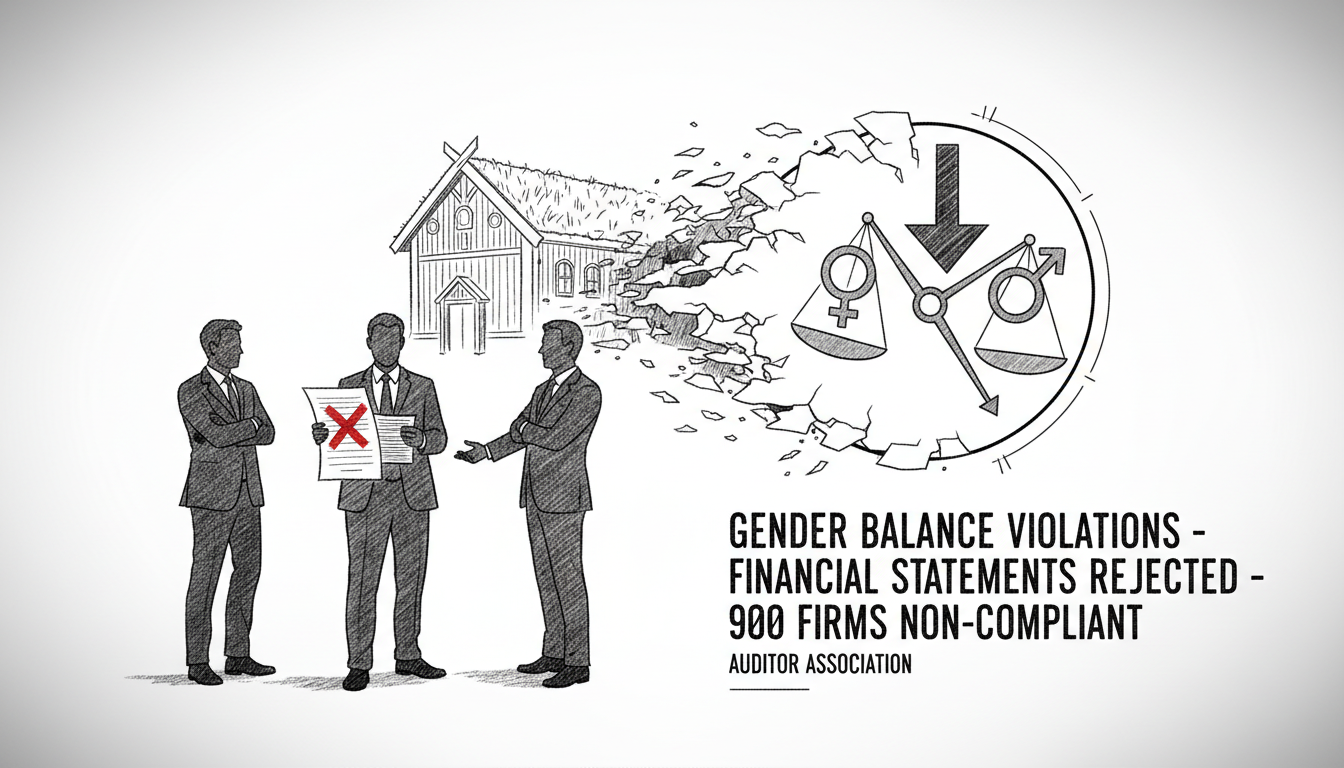Norwegian companies failing to meet board gender balance requirements should not have their annual accounts approved, according to the country's professional auditor association. This comes as revelations show approximately 900 companies have violated the legal deadline for implementing gender-balanced boards.
Espen Knudsen, Director of Framework Conditions at the Norwegian Auditor Association, states that auditors bear primary responsibility for ensuring compliance. "The annual accounts must be validly adopted by a board that complies with legal requirements before auditors can approve them," Knudsen explained. "This means the board must fulfill the law's gender balance requirements before adopting the financial statements."
Of the 900 non-compliant companies, 600 should have made changes before the new year. The largest publicly traded companies faced a deadline to achieve proper gender balance at the beginning of the third quarter.
Norway's gender balance legislation represents one of the world's most progressive corporate governance frameworks. The country has pioneered gender quota policies since 2003, when it first mandated that public limited companies must have at least 40% representation of each gender on their boards. The current rules extend these requirements to more companies and carry stronger enforcement mechanisms.
Knudsen outlined the escalation process for auditors dealing with non-compliant companies. "They must first raise this with the company, if necessary through formal written communication to the board," he said. "If the composition isn't corrected, the auditor should not approve the accounts. If nothing happens, the auditor must ultimately resign from the engagement."
The consequences for auditors who approve invalid financial statements could include criticism or fines from the Financial Supervisory Authority. "I don't rule out that the Financial Supervisory Authority will keep an eye on this," Knudsen noted.
The second line of enforcement falls to the Norwegian Business Register, which manually checks board compositions when companies report new or changed boards. However, this control relies entirely on companies self-declaring whether they fall under the regulations.
Register service manager Iselin Stolpestad confirmed that companies not declaring their coverage under the rules won't face automatic checks of their board composition. The register only controls when changes are reported, not when companies maintain existing boards.
For persistently non-compliant companies, the final recourse is forced dissolution. The Business Register gives companies one month to correct violations, followed by a two-week final warning period. If issues remain unresolved, the register notifies the court, which can dissolve the company without further warning.
The Norwegian government monitors compliance through regular information collection from the Brønnøysund Register Centre, with Statistics Norway also tracking statistics on the topic.
This situation highlights the ongoing challenge of enforcing corporate governance reforms, even in countries with strong regulatory frameworks. The gap between legislation and practical implementation reveals how systemic changes require both clear rules and robust enforcement mechanisms.
International businesses operating in Norway should note that the country's gender balance requirements form part of a broader Scandinavian trend toward mandated corporate diversity. Similar regulations exist or are developing in neighboring Sweden and Denmark, though Norway's framework remains the most comprehensive and strictly enforced.

